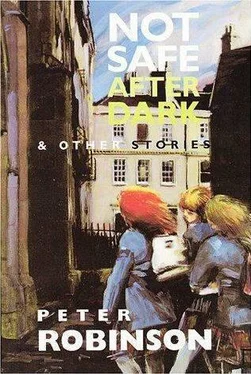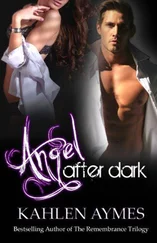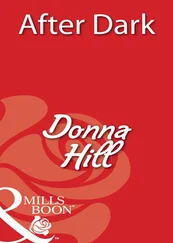I was fifteen in 1939, and Miss Eunice and Miss Teresa had been living in the village for twenty years, yet still they remained strangers to us. It is often said that you have to ‘winter out’ at least two years before being accepted into village life, and in the case of a remote place like Lyndgarth, in those days, it was more like ten.
As far as the locals were concerned, then, the two ladies had served their apprenticeship and were more than fit to be accepted as fully paid up members of the community, yet there was about them a certain detached quality that kept them ever at arm’s length.
They did all their shopping in the village and were always polite to people they met in the street; they regularly attended church services at St Oswald’s and helped with charity events; and they never set foot in any of the public houses. But still there was that sense of distance, of not quite being – or not wanting to be – a part of things.
•
The summer of 1939 had been unusually beautiful despite the political tensions. Or am I indulging in nostalgia for childhood? Our dale can be one of the most grim and desolate landscapes on the face of the earth, even in August, but I remember the summers of my youth as days of dazzling sunshine and blue skies. In 1939 every day was a new symphony of colour – golden buttercups, pink clover, mauve cranesbill – ever changing and recombining in fresh palettes. While the tense negotiations went on in Europe, while Ribbentrop and Molotov signed the Nazi-Soviet pact, and while there was talk of conscription and rationing at home, very little changed in Lyndgarth.
Summer in the dale was always a season for odd jobs – peat-cutting, wall-mending, sheep-clipping – and for entertainments, such as the dialect plays, the circus, fairs and brass bands. Even after war was declared on 3 September, we still found ourselves rather guiltily having fun, scratching our heads, shifting from foot to foot, and wondering when something really warlike was going to happen.
Of course, we had our gas masks in their cardboard boxes, which we had to carry everywhere; street lighting was banned, and motor cars were not allowed to use their headlights. This latter rule was the cause of numerous accidents in the dale, usually involving wandering sheep on the unfenced roads.
Some evacuees also arrived from the cities. Uncouth urchins for the most part, often verminous and ill-equipped for country life, they seemed like an alien race to us. Most of them didn’t seem to have any warm clothing or Wellington boots, as if they had never seen mud in the city. Looking back, I realize they were far from home, separated from their parents, and they must have been scared to death. I am ashamed to admit, though, that at the time I didn’t go out of my way to give them a warm welcome.
This is partly because I was always lost in my own world. I was a bookish child and had recently discovered the stories of Thomas Hardy, who seemed to understand and sympathize with a lonely village lad and his dreams of becoming a writer. I also remember how much he thrilled and scared me with some of the stories. After ‘The Withered Arm’ I wouldn’t let anyone touch me for a week, and I didn’t dare go to sleep after ‘Barbara of the House of Grebe’ for fear that there was a horribly disfigured statue in the wardrobe, that the door would slowly creak open and…
I think I was reading Far from the Madding Crowd that hot July day, and, as was my wont, I read as I walked across the village green, not looking where I was going. It was Miss Teresa I bumped into, and I remember thinking that she seemed remarkably resilient for such an old lady.
‘Do mind where you’re going, young man!’ she admonished me, though when she heard my effusive apologies, she softened her tone somewhat. She asked me what I was reading, and when I showed her the book, she closed her eyes for a moment and a strange expression crossed her wrinkled features.
‘Ah, Mr Hardy,’ she said, after a short silence. ‘I knew him once, you know, in his youth. I grew up in Dorset.’
I could hardly hold back my enthusiasm. Someone who actually knew Hardy! I told her that he was my favourite writer of all time, even better than Shakespeare, and that when I grew up I wanted to be a writer, just like him.
Miss Teresa smiled indulgently. ‘Do calm down,’ she said, then she paused. ‘I suppose,’ she continued, with a glance towards Miss Eunice, ‘that if you are really interested in Mr Hardy, perhaps you might like to come to tea some day?’
When I assured her I would be delighted, we made an arrangement that I was to call at Rose Cottage the following Tuesday at four o’clock, after securing my mother’s permission, of course.
•
That Tuesday visit was the first of many. Inside, Rose Cottage belied its name. It seemed dark and gloomy, unlike ours, which was always full of sunlight and bright flowers. The furnishings were antique, even a little shabby. I recollect no family photographs of the kind that embellished most mantelpieces, but there was a huge gilt-framed painting of a young girl working alone in a field hanging on one wall. If the place sometimes smelled a little musty and neglected, the aroma of Miss Teresa’s fresh-baked scones more often than not made up for it.
‘Mr Hardy was full of contradictions,’ Miss Teresa told me on one occasion. ‘He was a dreamer, of course, and never happier than when wandering the countryside alone with his thoughts. But he was also a fine musician. He played the fiddle on many social occasions, such as dances and weddings, and he was often far more gregarious and cheerful than many of his critics would have imagined. He was also a scholar, head forever buried in a book, always studying Latin or Greek. I was no dullard, either, you know, and I like to think I held my own in our conversations, though I had little Latin and less Greek.’ She chuckled, then turned serious again. ‘Anyway, one never felt one really knew him. One was always looking at a mask. Do you understand me, young man?’
I nodded. ‘I think so, Miss Teresa.’
‘Yes, well,’ she said, staring into space as she sometimes did while speaking of Hardy. ‘At least that was my impression. Though he was a good ten years older than me, I like to believe I got glimpses of the man behind the mask. But because the other villagers thought him a bit odd, and because he was difficult to know, he also attracted a lot of idle gossip. I remember there was talk about him and that Sparks girl from Puddletown. What was her first name, Eunice?’
‘Tryphena.’
‘That’s right.’ She curled her lip and seemed to spit out the name. ‘Tryphena Sparks. A singularly dull girl, I always thought. We were about the same age, you know, she and I. Anyway, there was talk of a child. Utter rubbish, of course.’ She gazed out of the window at the green, where a group of children were playing a makeshift game of cricket. Her eyes seemed to film over. ‘Many’s the time I used to walk through the woodland past the house, and I would see him sitting there at his upstairs window seat, writing or gazing out on the garden. Sometimes he would wave and come down to talk.’ Suddenly she stopped, then her eyes glittered, and she went on, ‘He used to go and watch hangings in Dorchester. Did you know that?’
I had to confess that I didn’t, my acquaintance with Hardy being recent and restricted only to his published works of fiction, but it never occurred to me to doubt Miss Teresa’s word.
‘Of course, executions were public back then.’ Again she paused, and I thought I saw, or rather sensed a little shiver run through her. Then she said that was enough for today, that it was time for scones and tea.
Читать дальше










![Джеймс Чейз - Not Safe to Be Free [= The Case of the Strangled Starlet]](/books/417649/dzhejms-chejz-not-safe-to-be-free-the-case-of-the-thumb.webp)

